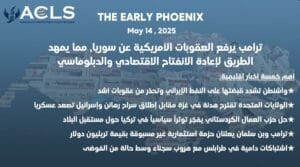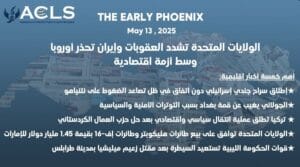★ إيران
إيران تفكك شبكة تجسس أميركية-إسرائيلية في مازندران
أعلن الحرس الثوري الإيراني تفكيك شبكة تجسس تعمل لصالح الولايات المتحدة وإسرائيل في محافظة مازندران شمال إيران. صرّح الجنرال سيافاش مسلمي أن أجهزة الاستخبارات الأميركية والإسرائيلية تستغل الأجانب والزوار المتكررين لاختراق المنظومة الأمنية الإيرانية. أكدت التقارير أن العناصر المشتبه بها تم تحديدهم واعتقالهم خلال عملية استخباراتية سرية. شددت إيران على التزامها بمواجهة الاختراقات الأجنبية وحماية الأمن القومي من التهديدات الخارجية.
إيران تضاعف ميزانيتها العسكرية ثلاث مرات وسط مخاوف إقليمية
رفعت إيران ميزانيتها العسكرية لعام 2025 إلى ثلاثة أضعاف، مخصصة 24% من عائدات النفط اليومية (11 مليار يورو) للدفاع، مقارنة بـ 4 مليارات يورو في 2024. نفى النائب أحمد أردستاني الاستعداد لحرب، لكنه أشار إلى أن المفاوضات لم تعد خيارًا. حذر قائد الحرس الثوري، أمير علي حاجي زاده، من رد عسكري في حال استهداف المنشآت النووية الإيرانية. مع تصاعد التوترات الأميركية-الإسرائيلية، تعزز إيران جاهزيتها العسكرية، مما يثير مخاوف من تصعيد إقليمي محتمل.
البرلمان الإيراني يبدأ إجراءات إقالة وزير الاقتصاد بسبب تدهور الريال
بدأ البرلمان الإيراني إجراءات عزل وزير الاقتصاد عبد الناصر همتي بعد التراجع الحاد في قيمة الريال أمام الدولار. أكد التلفزيون الرسمي أن النائب أحمد نادري قدم طلبًا رسميًا لإقالة همتي، ما يمهد لعقد جلسة استجواب برلمانية. وفق القانون الإيراني، أمام الوزير عشرة أيام للمثول أمام النواب، وتقديم إيضاحات اقتصادية، قبل التصويت على سحب الثقة وتحديد مستقبله السياسي.
===========
★ سوريا
روسيا تخطط لمحادثات رفيعة المستوى مع سوريا لتعزيز التعاون
أعلن وزير الخارجية الروسي سيرغي لافروف عن محادثات مرتقبة مع سوريا عقب اتصال بوتين بأحمد الشرع. زارت بعثة روسية برئاسة نائب وزير الخارجية ميخائيل بوغدانوف دمشق في يناير، في أول زيارة منذ سقوط الأسد. تسعى روسيا للحفاظ على قاعدتي طرطوس وحميميم، بينما تدرس سوريا تعديلات محتملة في الاتفاقيات الثنائية. يهدف الطرفان إلى تعزيز العلاقات الدبلوماسية والعسكرية والاقتصادية لضمان استمرار النفوذ الروسي في المنطقة.
اكتشاف مصنع براميل متفجرة في قاسيون بعد سقوط الأسد
أظهرت لقطات مصورة من جبل قاسيون في دمشق مئات البراميل المتفجرة الصدئة التي استخدمتها قوات الأسد سابقًا. كانت هذه البراميل المعبأة بالمتفجرات تُلقى عشوائيًا على المدنيين، متسببة في سقوط آلاف الضحايا. جاء الاكتشاف بعد سقوط الأسد في ديسمبر عقب هجوم للمعارضة من إدلب. أسفر الصراع السوري عن 600 ألف قتيل وتهجير 6.7 مليون شخص، مما يجعله إحدى أسوأ الأزمات الإنسانية في القرن. يرمز الموقع إلى دمار الحرب وآثارها المأساوية.
القوات الكردية تعتقل قائدًا بارزًا لميليشيا إيرانية في سوريا
اعتقلت القوات الأمنية الكردية مدلول العزيز، أحد القادة البارزين للميليشيات الإيرانية، في دير الزور أثناء محاولته الهرب. كان سابقًا في المعارضة السورية قبل انضمامه إلى الميليشيات المدعومة من إيران، متورطًا في تهريب النفط والفساد قبل فقدانه للحصانة البرلمانية. في سياق آخر، أُلقي القبض على ضابط مخابرات سابق للنظام متورط في إعدامات 2017. كما عُثر على ثلاثة عناصر من الميليشيات الإيرانية مقتولين في البوكمال، ما أثار احتجاجات محلية وتصاعد التوترات الأمنية.
===========
★ حرب إسرائيل و حماس
حماس مستعدة للإفراج عن جميع الرهائن الإسرائيليين في إطار اتفاق وقف إطلاق النار
أكدت حماس استعدادها للإفراج عن جميع الرهائن الإسرائيليين دفعة واحدة في المرحلة الثانية من وقف إطلاق النار، المقررة في 2 مارس. في الوقت نفسه، ستعيد حماس أربعة جثث إسرائيلية، بما في ذلك أفراد من عائلة بيباس وأوديد ليفشيتز، في 22 فبراير كجزء من المرحلة الأولى. أفرجت حماس عن 33 رهينة، بينما أفرجت إسرائيل عن 1,135 أسيرًا فلسطينيًا، مع توقع الإفراج عن 502 آخرين قريبًا. يهدف الاتفاق إلى إتمام تبادل الأسرى وتخفيف التصعيد بين إسرائيل وحماس.
ترامب يوقف تمويل الولايات المتحدة لقوات الأمن الفلسطينية
أوقف الرئيس الأميركي دونالد ترامب تمويل قوات الأمن الفلسطينية ضمن تجميد شامل للمساعدات الدولية لمدة 85 يومًا، باستثناء إسرائيل ومصر. يضعف القرار القدرات الأمنية الفلسطينية في ظل أزمة الحكم وعدم اليقين بشأن غزة بعد الحرب. تم تقليص برامج التدريب وسط محاولات للبحث عن مصادر تمويل بديلة. كما تم تأجيل اجتماع أمني أميركي-فلسطيني حول عمليات جنين، مما يزيد تعقيد التنسيق الأمني والاستقرار الإقليمي.
إسرائيل تواجه عجزًا بـ8 مليارات دولار وسط تدقيق صندوق النقد
ظهرت فجوة بقيمة 8.3 مليار دولار بين وزارة المالية الإسرائيلية ومكتب الإحصاء المركزي بشأن حساب العجز. أفاد مكتب الإحصاء بأن العجز بلغ 8.3% من الناتج المحلي الإجمالي، بينما قدرت المالية الإسرائيلية النسبة بـ6.9%، مشيرة إلى اختلاف طرق المحاسبة. انتقد صندوق النقد الدولي منهج وزارة المالية، مؤكدًا أن بيانات مكتب الإحصاء هي المرجع الرسمي. تعود الفجوة إلى حساب مدفوعات الفوائد والتزامات القطاع العام، مما يثير مخاوف بشأن الشفافية المالية، المصداقية الاقتصادية، وثقة المستثمرين العالميين.
حملة إسرائيلية: نزوح جماعي، غارات دامية، وتصاعد التوترات
قتلت القوات الإسرائيلية ثلاثة فلسطينيين في مخيم الفارعة خلال مداهمات في طولكرم، نابلس، قلقيلية، رام الله، والخليل، ما أسفر عن إصابة واعتقال العشرات. منذ إطلاق عملية “الجدار الحديدي” في 21 يناير، نزح أكثر من 40,100 فلسطيني، في أكبر عملية تهجير منذ 1967. قُتل 920 فلسطينيًا، اعتُقل 6,000 آخرون، ونُفذت 100 غارة جوية. تنفي إسرائيل عمليات التهجير القسري، لكن الأوضاع الإنسانية تتفاقم، مما يزيد التوترات ويثير مخاوف دولية بشأن سياساتها العسكرية في الأراضي الفلسطينية المحتلة.
============
★ لبنان
حزب الله يواجه أزمة مع تشديد سوريا قيود تهريب الأسلحة
اعتقلت القوات الأمنية السورية شبكة تهريب أسلحة لحزب الله في القطيفة بريف دمشق وسط تشديد إجراءات الحدود. بعد سقوط الأسد في ديسمبر، فقد حزب الله ممرًا أساسيًا لنقل الأسلحة، مما فاقم أزمته الداخلية. رفضت دمشق الوجود العسكري الإيراني وشددت إجراءات التفتيش في المطارات بعد تهديدات إسرائيلية. تعكس الاشتباكات الأخيرة على الحدود اللبنانية-السورية جهود مكافحة التهريب، تعزيز الأمن، وتشديد السيطرة الحدودية على الأسلحة غير المشروعة.
إسرائيل تكثف ضرباتها في جنوب لبنان وسط انتهاكات للهدنة
شنت إسرائيل عدة غارات على جنوب لبنان، أسفرت عن مقتل عنصر من حزب الله في عيتا الشعب وشخص آخر، وإصابة اثنين آخرين. تأتي هذه الضربات كأول عمليات إسرائيلية بعد الانسحاب بموجب هدنة بوساطة أميركية. مع سبعة انتهاكات جديدة اليوم، بلغ إجمالي الخروقات 1,005 منذ بدء الهدنة. رغم الاتفاق على انسحاب إسرائيلي بحلول 26 يناير، تحتفظ إسرائيل بخمس تلال استراتيجية، مما يزيد التوترات وتدهور الأوضاع الإنسانية، في وقت يطالب القادة اللبنانيون بانسحاب كامل.
============
★ العراق
طهران تهدد بغداد وأربيل بضربات جوية
صعّدت إيران التوترات مع بغداد وأربيل، مهددة بشن ضربات جوية على المعارضة الإيرانية في كردستان العراق، متذرعة بمخاوف أمنية. وفقًا لمصادر مطلعة، حذرت طهران العراق من أن الضربات ستُنفذ إذا لم تُنفذ الاتفاقيات الأمنية. تسعى بغداد إلى الضغط سياسيًا على طهران لمنع تنفيذ تهديداتها، مما يزيد من المخاطر الأمنية والتوترات الدبلوماسية في المنطقة.
تركيا والعراق يعززان التعاون النفطي قبل استئناف الصادرات
التقت نائبة وزير الخارجية التركي،عائشة بيريس أكنجي، بوزير النفط العراقي، حيان عبد الغني في بغداد، والرئيس نيجيرفان بارزاني في أربيل لبحث التعاون النفطي والتطورات الإقليمية. تأتي المحادثات في أعقاب خطة العراق لاستئناف صادرات النفط إلى تركيا خلال أسبوع بعد توقفها منذ مارس 2023. سيوفر إقليم كردستان 300 ألف برميل يوميًا للحكومة العراقية لتصديرها عبر ميناء جيهان التركي، مما يعزز العلاقات الاقتصادية والتعاون في قطاع الطاقة.
العراق يؤكد استمرار دعم لبنان بالوقود لتعزيز استقرار الطاقة
أكد رئيس الوزراء العراقي، محمد شياع السوداني، لنظيره اللبناني نواف سلام استمرار دعم العراق للبنان بالوقود، مع بحث تعزيز العلاقات والأمن الإقليمي. شدد السوداني على التزام العراق بتأمين احتياجات الطاقة اللبنانية وفق الاتفاقات الحكومية. من جهته، أكد لبنان رغبته في توسيع التعاون الثنائي. يضمن اتفاق 2023 تزويد العراق للبنان بالنفط الخام والغاز أويل لدعم قطاع الكهرباء، مما يعزز الاستقرار الاقتصادي والطاقة.
============
★ دول الخليج
أمير قطر يلتقي القادة الإيرانيين لبحث الاستقرار والتعاون الإقليمي
التقى أمير قطر، الشيخ تميم بن حمد آل ثاني، بالمرشد علي خامنئي والرئيس مسعود بزشكيان في طهران لبحث العلاقات الثنائية، القضايا المالية العالقة، والاستقرار الإقليمي. شدد الشيخ تميم على أهمية الحوار في حل النزاعات، واستعرض سبل تعزيز التعاون الاقتصادي. أكد الجانبان على وقف إطلاق النار في غزة، استمرار المساعدات الإنسانية، ودعم المسار السياسي في سوريا. تعكس الزيارة وسط التوترات الإقليمية جهود قطر الدبلوماسية لتعزيز الأمن، توطيد الشراكات، ومواجهة التحديات الجيوسياسية عبر المشاورات رفيعة المستوى.
السعودية تحتل المرتبة الخامسة عالميًا بإنفاق دفاعي يبلغ 76 مليار دولار
تُصنَّف السعودية خامس أكبر دولة إنفاقًا عسكريًا عالميًا، مخصصة 76 مليار دولار للقطاع الدفاعي. وفقًا لـرؤية 2030، تستهدف توطين 50% من الإنفاق العسكري، حيث بلغت النسبة 19.5% العام الماضي مقارنة بـ4% في 2018. تواصل المملكة تطوير قطاعها الدفاعي المحلي لتعزيز الاكتفاء الذاتي والنمو الاقتصادي والتقدم التكنولوجي، مما يقلل الاعتماد على الموردين الأجانب مع تعزيز القدرات العسكرية.
أسواق الخليج تتراجع بعد تهديدات ترامب الجمركية ومخاوف إمدادات النفط
تراجعت معظم أسواق الخليج مع رد فعل المستثمرين على تهديدات الرئيس الأميركي دونالد ترامب بفرض تعريفات جمركية على واردات رئيسية. فرض ترامب رسومًا بنسبة 10% على السلع الصينية، وأعلن ضريبة 25% على الواردات من المكسيك وكندا. ارتفعت الأسهم السعودية بشكل طفيف، بينما انخفضت أسواق أبوظبي، دبي، وقطر. زادت أسعار النفط بسبب اضطرابات الإمدادات في الولايات المتحدة وروسيا، مما زاد من مخاوف المستثمرين وسط التوترات الجيوسياسية وتغيرات السياسات الاقتصادية.
============
★ مصر & شمال أفريقيا
مصر توقع اتفاقًا بقيمة 7 مليارات دولار لإنشاء مجمع بتروكيماويات
وقعت وزارة البترول المصرية اتفاقًا إطاريًا مع شركة شارد كابيتال البريطانية لتطوير مجمع بتروكيماويات في العلمين الجديدة بقيمة 7 مليارات دولار، بالشراكة مع مجموعة القحطاني السعودية. وقع الاتفاق إبراهيم مكي، رئيس الشركة المصرية القابضة للبتروكيماويات، وجيمس لويس، رئيس شركة شارد كابيتال. حضر التوقيع وزير البترول كريم بدوي، السفير البريطاني جاريث بايلي، والرئيس التنفيذي لمجموعة القحطاني، الشيخ عبد الهادي طارق القحطاني.
موديز تؤكد تصنيف مصر عند Caa1 مع نظرة مستقبلية إيجابية
أعادت وكالة موديز تأكيد تصنيف مصر الائتماني طويل الأجل عند Caa1، مع الحفاظ على نظرة مستقبلية إيجابية. أوضحت الوكالة أن التوقعات الإيجابية، السارية منذ مارس 2024، تعكس تحسنًا متوقعًا في خدمة الدين المصري والوضع الخارجي. أشارت موديز إلى تقدم في إعادة التوازن المالي والخارجي، بما يتماشى مع التقييمات السابقة، مما يشير إلى استقرار محتمل في المشهد المالي لمصر.
نيروبي تستضيف محادثات لتشكيل حكومة موازية في السودان
استضافت العاصمة الكينية نيروبي اجتماعًا رفيع المستوى ضم فصائل سياسية وقادة قوات الدعم السريع لمناقشة تشكيل حكومة سودانية موازية. أدانت وزارة الخارجية السودانية الخطوة، متهمة كينيا بانتهاك القانون الدولي وميثاق الأمم المتحدة. حذرت الوزارة من أن هذه التحركات تعزز انقسامات الدول الإفريقية، وتقوض السيادة الوطنية، وتتدخل في الشؤون الداخلية للسودان، مما يزيد التوترات الدبلوماسية الإقليمية.
إسبانيا تكتشف نفقًا لتهريب المخدرات بين المغرب وسبتة
كشفت الشرطة الإسبانية عن نفق سري يربط بين المغرب وجيب سبتة الإسباني، يُعتقد أنه يستخدم في عمليات تهريب المخدرات. أوضحت السلطات أن النفق، الذي يمتد لعشرات الأمتار وعلى عمق 12 مترًا، تم العثور عليه داخل مستودع صناعي في سبتة. وفقًا للحرس المدني الإسباني، فإن هيكل النفق الضيق والمدعّم بالخشب يشير إلى استخدامه في تهريب الحشيش بين الجانبين.
============




